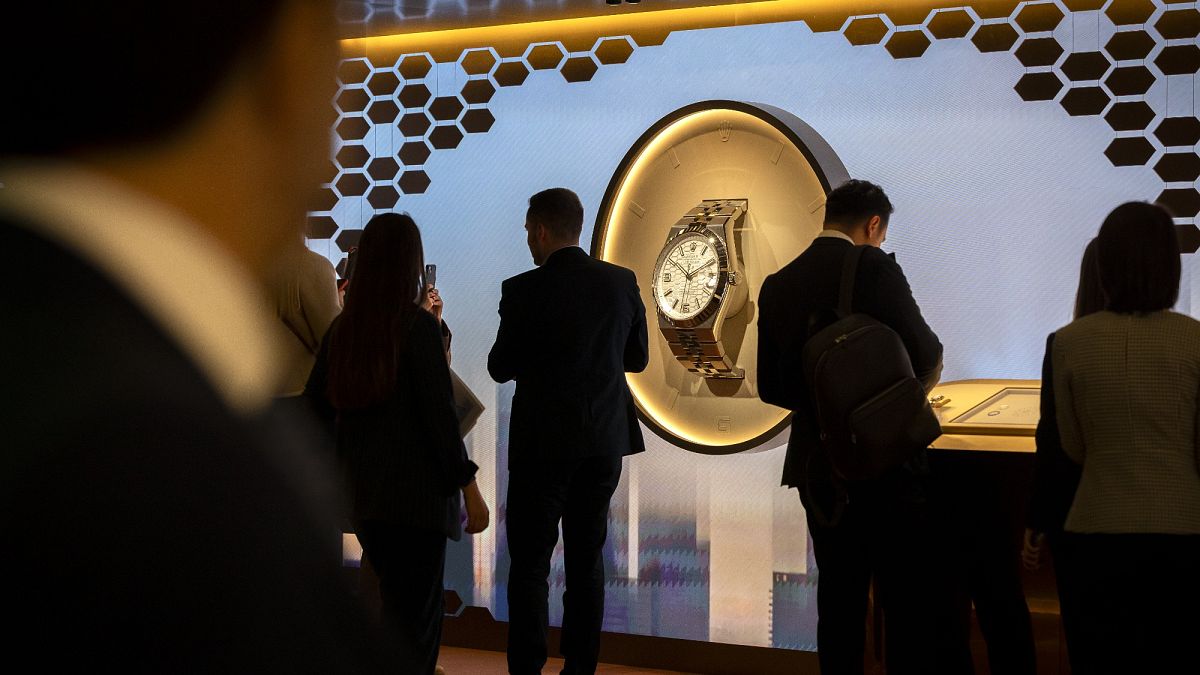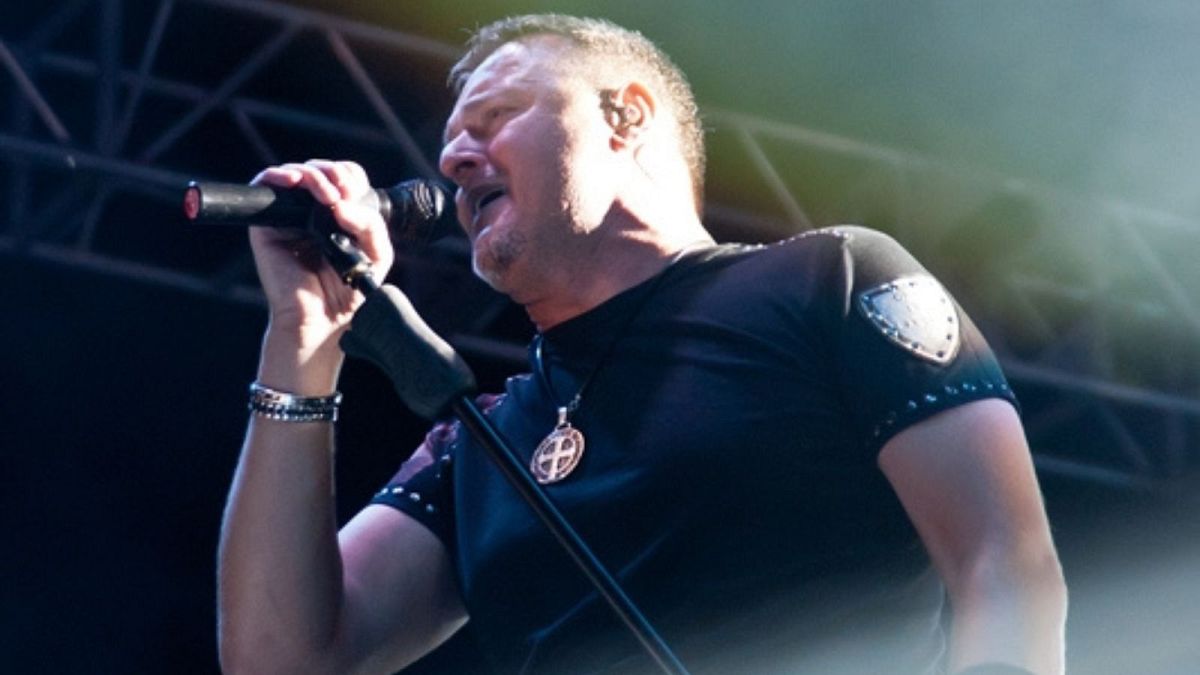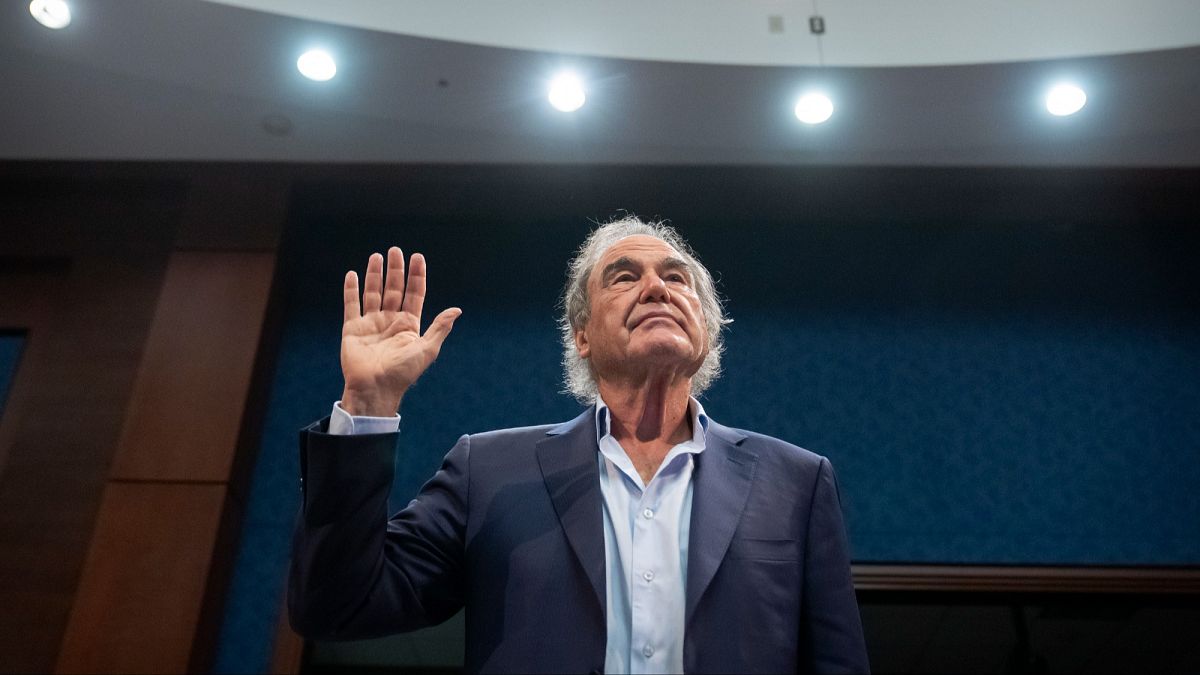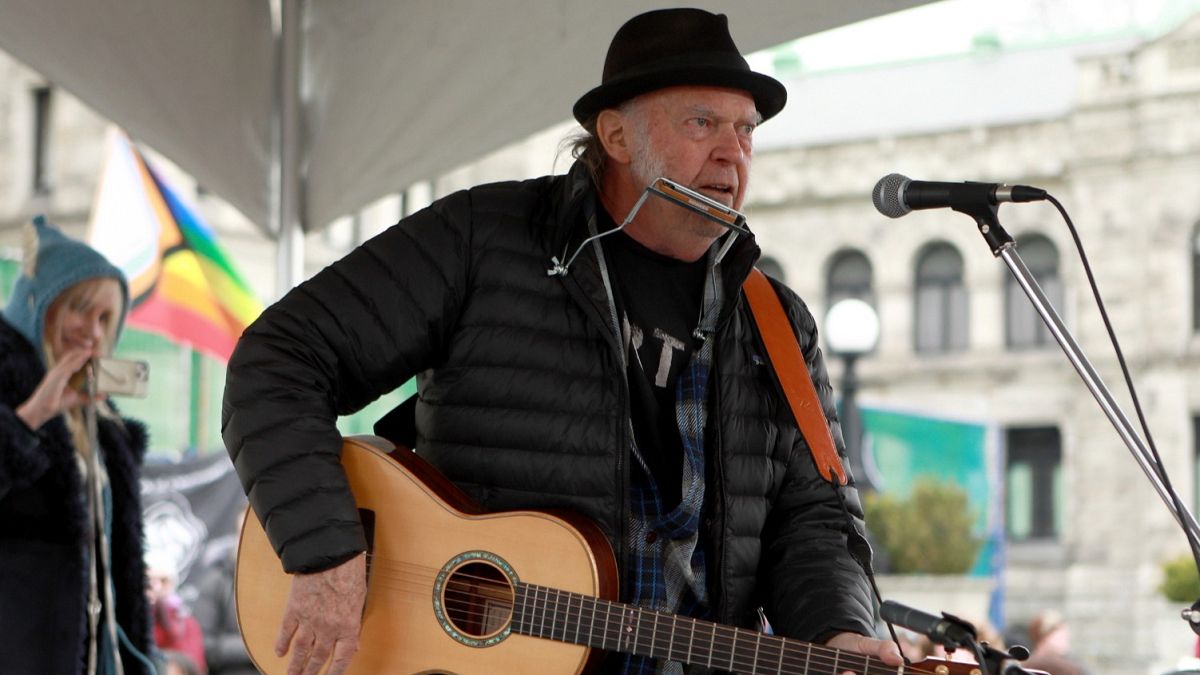More and more audiophiles are flocking to bars that have invested in top end equipment and a focus on vinyl. Euronews Culture speaks to the man who brought the phenomenon to Europe.
"This is the Kronos Quartet and Asha Bohsle. I love this album," smiles Paul Noble, seated on a stool opposite me wearing a cloth cap.
From the industrial ceiling hang small spotlight cylinders, super high-spec speakers and a glitter ball. A projector beams mildly psychedelic imagery onto one wall, while another boasts a generous spirits collection that basks invitingly in the effulgence.
Sonically obsessed from an early age, Noble had a lengthy career with BBC radio, notably producing the much-vaunted Maida Vale sessions. But in 2012, he found himself in Japan, and that's where his idea took shape.
"I went to Japan where they have a tradition of listening bars," he tells Euronews Culture. "And they could be tiny with six seats in them, maybe eight seats in them, and they just play records from start to finish on an amazing sound system. Usually there's a cover charge. So you're kind of already predisposed to go and listen and pay attention. They are all divided by genre so it's kind of an expression of the owner's personal taste so there'll be a jazz bar, there'll be a blues one, a classical music one. There's some kind of soft rock ones. It's nothing to do with club culture. It's nothing to do with DJing. Some might have you know, one turntable one CD player. I just completely fell in love with it. I couldn't get enough of it."
Trend or bandwagon?
Listening bars have become something of a trend in recent years but since the end of the pandemic (which cut short Spiritland's presence at the Royal Festival Hall) more and more bars are, wittingly or otherwise, becoming seen as part of the audiophile phenomenon.
What qualifies a premises to exist in this burgeoning category, however, is up for debate. After all, what separates a 'listening bar' from a normal bar that plays music or has DJs? For Noble, it starts with the sound system. At Spiritland, the system is made by high-performance audio product trailblazer Living Voice, who engineer speakers to represent as faithfully as possible the sound of the acoustic instrument and not to seemingly compress the sound, which Kevin Scott, who heads up the Derbyshire manufacturer, believes conventional speakers do.
"I was already buying stuff from them," says Noble. "I was on my own audio journey. They make some wild high-end speakers that can cost up to a million pounds with rare woods and gold finishes, but they also make some real-world ones, so I got rid of my whole sound system at home and bought from them for my lounge. And then we talked and they built this system for us. It was their tech but we had input on the design."
"We just put our flag in the sand saying 'this is a listening bar'. Lots of people came in and were saying "oh you can't dance, there are chairs all over the dance floor". It's not a club. We didn't put a kitchen and a radio studio in the corner accidentally. This is us saying this is what we're about. There's DJs playing every night, we do talks, we do lots of work with the record industry, with literature and film, and because of the room and the design and the sound system, we do lots of album launches," Noble explains. "We've done Dylan, The Beach Boys, Bruce Springsteen, Jack White."
Friends in hi-fi places
A few miles east of here is a bar that has been linked with this hi-fi culture in some quarters, but perhaps the categorisation is misplaced.
"Whilst we have high quality sound and audio in the space, we wouldn't really coin ourselves strictly as a listening bar," explains Karl Fuller, part of the collective behind Hackney Wick hangout All My Friends.
"This space was created with the intention of giving our community a more laid back space to hang out and exchange ideas. With our roots in clubs and dance music, connecting with music be it on the dance floor, or in a more laid back environment has always been extremely important to us."
So here, while musical devotion is clearly observable (the lower floor houses a record shop), and money has been spent on sound, we're not finding quite the same culture of listening. It's more about connection between people here.
"The place caters for a wide range of ages and demographics," Fuller goes on. "But being that it isn't a ticketed space and is open access, it's certainly a lot more accessible for a wider pool of people. It's a place for our friends to eat, drink, buy records, listen to great music and when night hits and we move the chairs, have a proper dance too."
Listening in Lisbon
Back in Kings Cross, although the chairs are staying firmly where they are, the operation has spread its wings into continental Europe.
Noble shows me a picture of the bar he and his business partner Sophie Uddin have just opened under the Spiritland name in an old Lisbon library with huge double-height ceilings. It certainly has the wow factor.
"It's a really lovely space," Noble is happy to concede. "We've just put ourselves forward for a design award."
Spiritland has in fact opened six bars in Lisbon and the two that are music focussed are sister bars of the one in which Noble and I are chatting. Why Lisbon? Because he likes it.
"I was travelling there loads, going to the bars, meeting everyone. We did a load of parties in the run-up, warehouse parties," he says of the lead up to opening Spiritland Lisbon and Kissaten (which also boasts the Portuguese capital largest whisky collection), both housed in the Locke Hotel.
One of the key differences from what's happening in Europe to the initial Japanese inspiration is generalisation. Reproducing genre-specific listening establishments is simply too niche.
"It's just not going to work here. The audience is very, very broad, musically."
Divinyl Inspiration
When you walk into a bar of this nature, it's almost guaranteed that you will see lashings of vinyl. According to a report by Luminate, vinyl album sales increased from 13.1 million in 2016 to 49.6 million in 2023, a growth of nearly 300% over eight years. But what's behind the vinyl resurgence? Is it really better?
"We're not vinyl-only at all," Noble says, perhaps surprisingly. "We've got CD players, we've got digital players. We do have a big record collection. Vinyl is a really nice way to file your music and the format of an album is great. But the sound, I think, has been blown out of the water by digital high-res recording. Vinyl is a nice way to build a library, a nice way to categorise it but with an amazing collection of music on a USB drive, although you can't see it, and can't hold it, the quality would be better than anything you're going to hear on record."
This is perhaps a diplomatic way to blow off arguments from vinyl purists that their chosen format is the most faithful way to replicate any given musical recording. There is a sense with vinyl collectors that it's somehow more honest but Noble makes the interesting point that you have to look at the full set up in any format to ensure that there's no weak link for the listener, regardless of the ephemera surrounding the format.
"When you're playing vinyl, every link in the chain from the cartridge to the pre-amp and the needle needs to be matched. So you could have one excellent piece that's then let down by another element."
And it's this meticulous care and attention that recapitulates the listening bar's Japanese origins, where reverence for quality sound and engagement with the music was akin to religion.
This is not to say that vinyl is not a huge feature of the Spiritland universe.
"Every day from 6pm here we play music on turntables and it sounds amazing," Noble says. "But is it technically better than 24-bit hi-res digital recording? Well, I guess it's a preference."

 1 day ago
3
1 day ago
3






 We deliver critical software at unparalleled value and speed to help your business thrive
We deliver critical software at unparalleled value and speed to help your business thrive






 English (US) ·
English (US) ·